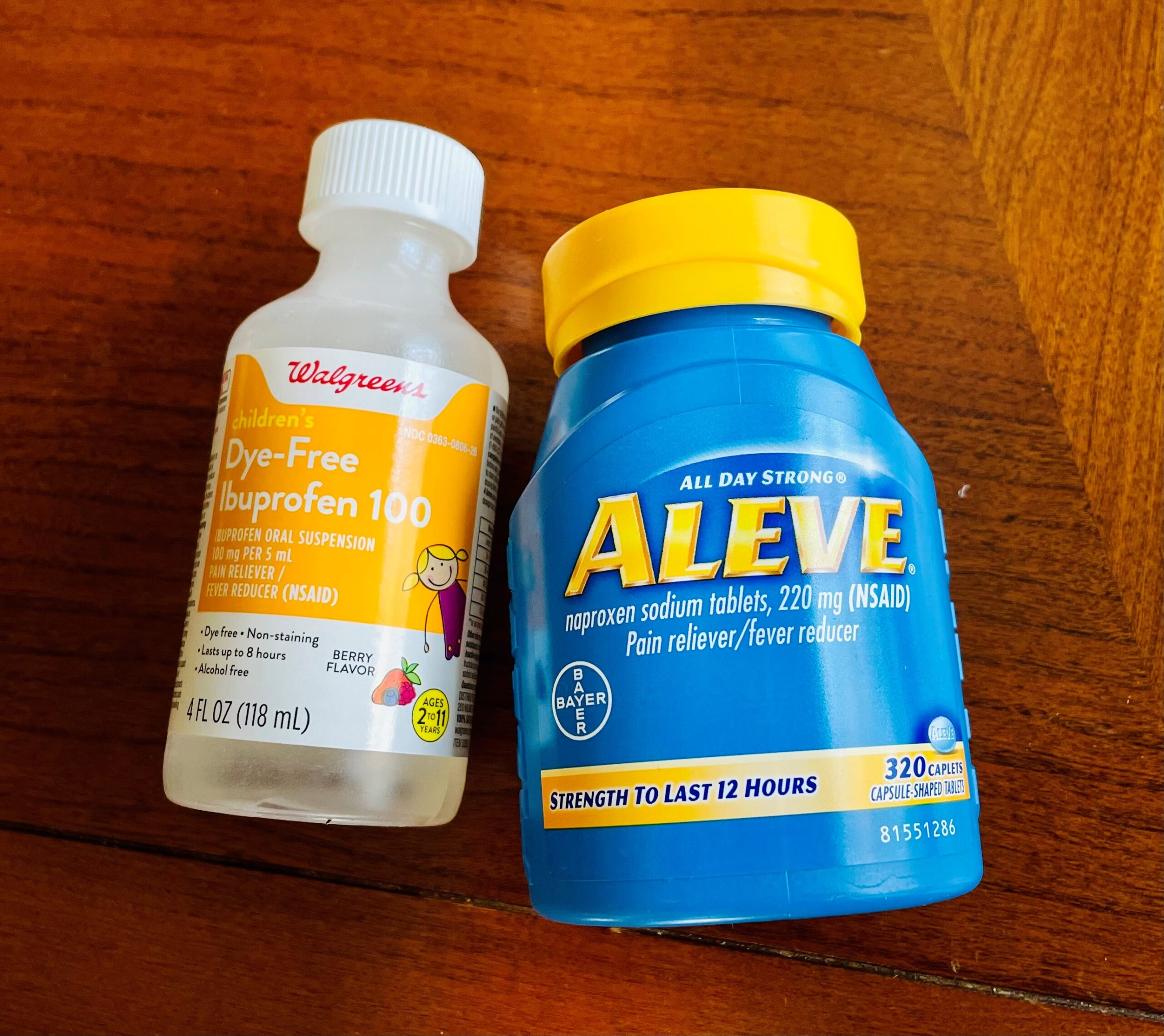Meera’s Story: Meera is a 52-year-old medical receptionist with chronic back pain due to a road traffic accident. She is afraid to take pain medicines as she has seen many folks with drug-induced complications. However, the pain is preventing her to work and function effectively. This is causing her financial troubles. She is depressed, lonely and miserable. Although some details are altered, this is a true authentic story of how pain and fear of medicines affected her life.
In the last blog, I discussed how commonly used pain-relievers called NSAIDs can cause serious adverse events. For obvious reasons, hearing about these adverse drug reactions makes us worried. At times the anxiety emanating from the concerns of harms is so controlling that it forces us to avoid taking the drug altogether. But it is important to remember that Pain is equally bad.
Why is Pain Bad?
Pain as an uninvited guest can arrive in our lives due to variety of reasons. Brief periods due to dental work/surgeries, traumatic due to falls, accidents, or long-standing (chronic) pain due to illnesses such as arthritis, back problems, diabetes and so forth. We all know that pain makes our lives miserable and is no fun. It can have debilitating effects on our psychological, physical and mental health. People living with pain are more likely to experience depression which in turn can have devastating downsides. Pain can also cause fatigue, missed work, increased disability and decreased quality of life as demonstrated in many research studies. Not only that it feels awful, pain is bad for our health.
So how does one get rid of pain while balancing the risks of NSAIDs?

This is a million-dollar question. Researchers are working tirelessly to find appropriate safe solutions to treat pain with minimal side-effects. Navigating to sort through the benefits and risks of NSAIDs can be bewildering for the patients. We don’t have all the answers yet. However, let me list few critical points that may help to keep things in perspective.
- Medicines affect each person differently: It is important to realize that many factors affect drug behavior. An individual’s age, weight, gender, medical history and other medicines one is taking can all have a significant impact on how a medicine is going to influence one’s health. Thus, your benefits-risks ratio may be quite different than your mom’s or friend’s. More on risk factors below.
- Probability of serious risks from NSAIDs is low: The likelihood that any given individual user of an NSAID will suffer a serious drug-related complication is relatively low, especially if used per guidance by one’s doctor.
Am I at an increased risk of NSAID-related complication?
Years ago, doctors believed that NSAIDs class of analgesics were very safe. They still are acceptably safe for many people but long-term experience and medical research have helped us identify high-risk individuals in whom these drugs pose a well-defined enhanced risk. These are:
- Age > 60 years
- Prior history of stomach ulcer especially complicated ulcer such as with gastrointestinal bleeding
- High dose or using multiple NSAIDs (such as aspirin + ibuprofen)
- Using blood thinners (such as Warfarin/coumadin)
- Taking corticosteroids (such as prednisone)
- Concomitant use of certain antidepressants/selective serotonin reuptake inhibitors or SSRIs (such as fluoxetine)
- Prior history of heart attack or ischemic heart disease or stroke
- Having congestive heart failure, kidney disease, cirrhosis/liver disease

Be Informed of the Risk Factors
If you have any of these aforementioned risk factors, it is prudent to discuss your pain management plans with your physician and avoid self-treatment using over-the-counter analgesics.
Now if you have read until now and have decided to follow and join my blog you are making a voluntary choice to start your journey to achieve optimal health. Therefore, let me list a few tips that I always suggest my patients taking analgesics. These evidence-based advices will help to prevent and reduce the likelihood of NSAIDs-related side-effects regardless of your risk profile.
- Choose Topical therapies: If possible in your unique case, discuss the role of using topical gel such as diclofenac (aka voltaren gel) with your doctor. Directly applied gel to the skin is less likely to be absorbed in enough quantities in the body. Therefore, it is less likely to effect heart disease or pose other risks. Also, you can ask your physician about topical lidocaine gel which is a different class of drug.
- Role of Acetaminophen: Commonly known as Tylenol (in the US) this drug can be an effective analgesic. However, the drug does not target inflammation. So, if your pain is associated with swelling, redness such as in arthritis, the drug may not be solely effective. However, here is a trick: Add a small dose of acetaminophen with an NSAID. It helps to lower the dose one needs for each drug to achieve adequate analgesia. And remember, lower the dose, lower the risk!
- Limit the dose and duration: Start low and slow. Always use the lowest possible dose to achieve adequate pain control. Once the pain gets better, reduce the dose or if possible stop the medicine completely. Do not mix NSAIDs. Beware of all the potential sources of NSAIDs. Read the labels of all the medicines carefully as some may contain aspirin, or salicylates. This could inadvertently increase the overall dose of NSAIDs consumed by you.
- Beware of the drug-interactions: Try to keep a list of all your medicines and if possible your health history handy. So, when you go to see a specialist or buying an over-the-counter analgesic consult the doctor or pharmacist to conduct a thorough screening. This could potentially prevent drug mishaps. In a rush, can’t make the list, just throw all your medicine bottles in a bag and take them along to all your medical appointments.
- Safer NSAIDs: All NSAIDs don’t have equal risks. Although the final verdict on each drug’s safety profile is not out yet, some NSAIDs are less risky than others. For example: Naproxen (AKA Aleve) may be less likely to pose heart risks as opposed to other non-aspirin NSAIDs.
- Drug Prophylaxis: We know that stomach acid-controlling drugs such as omeprazole can protect against the risk of NSAID-induced stomach ulcers and bleeding. Thus, if you must take an NSAID due to an underlying condition and need it over long-term such as in chronic arthritis, (or you take multiple NSAIDs such as both topical and oral or you need higher doses): you must speak to your doctor to see if you may benefit from this co-prescription.
- Lifestyle factors: Aim to take NSAIDs including aspirin with food and avoid taking it empty stomach. Drink extra amounts of water when taking the drug. Avoid too much salt ingestion. Monitor your blood pressure daily if you have hypertension or high blood pressure.
- Soothe without the pills: It is important to seek drug alternatives to relieve pain. Physical activity in the form of exercise, yoga, physical therapy can help. Joint-supporting devices such as splints and supports can be beneficial. Complementary therapies such as massages, acupuncture and hypnosis can be valuable additions. Finally, healthy habits such as weight-loss, balanced diet, and stress-reduction are research-proven ways to achieve effective pain control. Even if they may not fully alleviate the discomfort; these may reduce the overall reliance on analgesics and thus minimizing the probability of adverse reactions.
- Call for help: While taking the drug if you develop rashes, ringing of ears, sudden weight gain or fluid retention, chest pain, breathing issues, stomach pain/diarrhea or become pregnant call your doctor. Simply stated, if you are concerned, seek advice.
Folks, if we are careful to choose and use drugs wisely, they can be a tremendous help to alleviate disease and suffering. However, ignoring the risks of these drugs can turn out to be a very costly affair. Finally, I hope we all remain cognizant of NSAID side-effects and work in collaboration with our doctors and clinicians to prevent harms.
As Albert Einstein Said, “A clever person solves a problem. A wise person Avoids it.” So be wise, and avoid the risks.


Cheers!